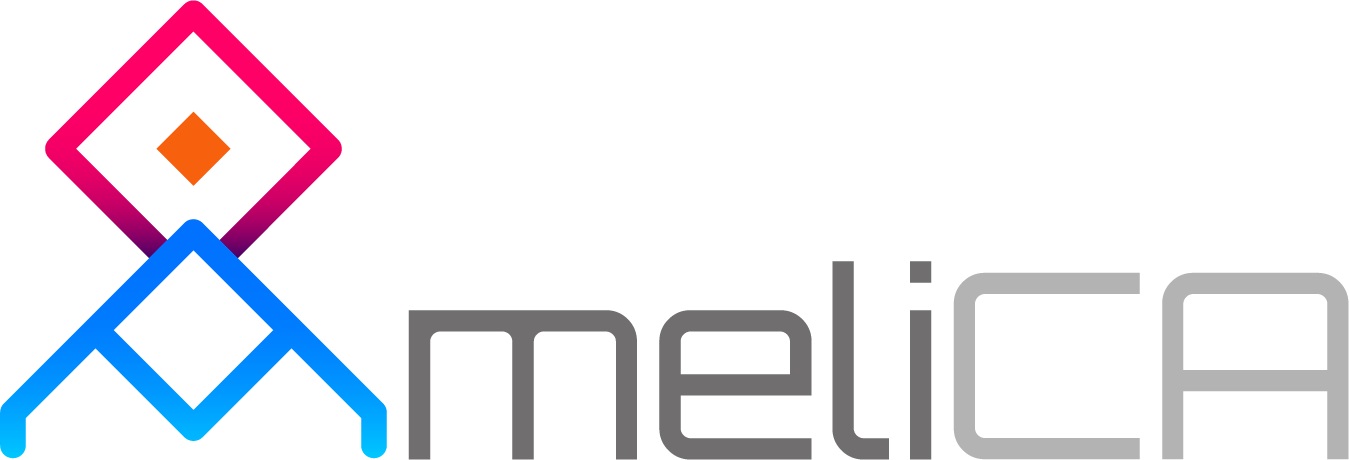Respecting cultural diversity in ethics applied to AI : a new approach for a multicultural governance
Respetar la diversidad cultural en la ética aplicada a la Inteligencia Artificial : un nuevo enfoque para un gobierno multicultural
COPYRIGHT PROVISIONS
Every papper included in the magazine can be reproduced whole or in part, provided that respect for its original content, the source is acknowledged and is used with non-commercial academic. Legal mission and its content is protected under a license Creative Commons Attribution-Noncommercial-

Misión Jurídica is distributed under a Creative Commons Attribution-NonCommercial-NoDerivar 4.0 International License.
Based on a work in http://unicolmayor.edu.co/publicaciones/index.php/mjuridica/index.
Permits that go beyond what is covered by this license can be found at http://unicolmayor.edu.co/publicaciones/index.php/mjuridica/index.
Show authors biography
Artificial intelligence seems to be part of our everyday lives. For some it represents the promise of a better world and many improvements that would be beneficial for humanity. For others, AI is seen as threat, if not an existential threat that needs to be controlled strictly. Whatever the stance, the need to regulate AI is now widely recognized. Short of legal instruments offering a specific framework for the development and use of AI, ethics has been summoned to set standards and establish guardrails. Yet, the number of documents pertaining to ethical standards for AI has increased exponentially to reach a point where it is difficult to know how to use them efficiently. These documents have mostly been issued to promote vested interests, and the setting of a universal code of AI ethics has been seen as a solution for AI global governance. If a global governance system is required to avoid negative outcomes of AI, it appears that the idea of a universal code of ethics denies the diversity of ethical standpoints based on the diversity of philosophical cultures the world is made of. Instead of offering a legitimate and efficient tool, such a solution could lead to cultural tensions between leading actors in the field of AI as it is the case between China and the United States. To avoid conflicting situations stemming from the denial of cultural diversity, it is more than ever necessary to put aside the idea of a universal code of AI
Article visits 313 | PDF visits 239
Downloads
- Jobin, Anna, Ienca, Marcello and Vayena, Effy. “The Global Landscape of AI Ethics Guidelines.” Nature Machine Intelligence 1.9 (2019): 389-99.
- Zeng, Yi, Lu, Enmeng, and Huangfu, Cunqing. “Linking Artificial Intelligence Principles.” CEUR Workshop Proceedings 2301, paper 15 (2019).
- Jelinek, Thorsten. “The Future Rulers? On Artificial Intelligence Ethics and
- Governance.” In Billows W. and Körber S. Reset Europe: Time For Culture To Give Europe New Momentum. Institut für Auslandsbeziehungen (2020): 244-252.
- OECD. Recommendation of the Council on Artificial Intelligence. OECD Legal Instrument 0449 (2021). Available at
- UNESCO. Preliminary report on the first draft of the Recommendation on the Ethics of Artificial Intelligence. (2020). Available at https://events.unesco.org/event?id=515530304
- HLEGAI - High-Level Expert Group on Artificial Intelligence. Ethics guidelines for Trustworthy AI. European Commission (2019). Available at file:///D:/Publications/En%20cours/ICSSD/ai_hleg_ethics_guidelines_for_trustworthy_ ai-en_87F84A41-A6E8-F38C-BFF661481B40077B_60419.pdf
- G20. Ministerial Statement on Trade and Digital Economy. Tsukuba City, Japan, 8-9 June 2019. Available at https://www.mofa.go.jp/files/000486596.pdf
- CAHAI - Ad hoc Committee on Artificial Intelligence. “Towards regulation of AI systems: Global perspectives on the development of a legal framework on Artificial Intelligence (AI) systems based on the Council of Europe’s standards on human rights, democracy and the rule of law.” Council of Europe (2020). Available at https://rm.coe.int/prems-107320-gbr-2018-compli-cahai-couv-texte-a4-bat-web/1680a0c17a
- Bielby, Jared. “Comparative philosophies in intercultural information ethics.”
- Confluence: Online Journal of World Philosophies 2 (2015): 233-253.
- IEEE. Ethically Aligned Design First Edition: Prioritizing Human Wellbeing with Autonomous and Intelligent Systems. Institute of Electrical and Electronics Engineers (2019). https://standards.ieee.org/content/dam/ieee-standards/standards/web/documents/other/ead1e.pdf?utm_medium=undefined&utm_source=undefined&utm_campaign=undefined&utm_content=undefined&utm_term=und efined
- European Commission. Proposal for a Regulation of the European Parliament and of the Council, laying down harmonised rules on artificial intelligence (artificial intelligence act) and amending certain union legislative acts. COM(2021) 206 final, 2021/0106(COD). Brussels (2021). Available at https://eur-lex.europa.eu/legal-content/EN/TXT/HTML/?uri=CELEX:52021PC0206&from=EN
- Aristotle. History of Animals. Translated by D’Arcy Wentworth Thompson. The Internet Classics Archive (2000). Available at http://classics.mit.edu/Aristotle/history_anim.html
- Lovejoy, Arthur O. The Great Chain of Being: A Study of the History of an Idea. Harvard University Press (1964).
- Heidegger, Martin. The Question Concerning Technology.1958.
- Simondon, Gilbert. On the Mode of Existence of Technical Objects. Translated form French by Cécile Malaspina and John Rogove. Univocal Publishing (2017) [1958].
- Feenberg, Andrew. Transforming Technology: A Critical Theory Revisited. Oxford University Press (2002).
- Evans, Lewis. The Satires of Juvenal, Persius, Sulpici, and Luculius. Henry G. Bohn (1860).
- Goffi, Emmanuel R. “Escaping the Western Cosm-Ethical Hegemony: The Importance of Cultural Diversity in the Ethical Assessment of Artificial Intelligence.” AI Ethics Journal 2(2)-1 (2021).
- Auernhammer, Jan. “Human-centered AI: The role of Human-centered Design Research in the development of AI.” In Boess, S., Cheung, M., and Cain, R. (eds.). Synergy - DRS International Conference 2020, (2020). Available at https://dl.designresearchsociety.org/drs-conference-papers/drs2020/researchpapers/89/
- Hagendorf, Thilo. “The Ethics of AI Ethics: An Evaluation of Guidelines.” Minds and Machines 30 (2020): 99-120. Available at https://link.springer.com/content/pdf/10.1007/s11023-020-09517-8.pdf
- Greene, Daniel, Hoffmann, Anna Lauren, and Stark, Luke. “Better, Nicer, Clearer, Fairer: A Critical Assessment of the Movement for Ethical Artificial Intelligence and Machine Learning.” HICSS (2019).
- Fjeld, Jessica, Achten, Nele, Hilligoss, Hannah, Nagy, Adam, Adam, and Srikumar, Madhulika. “Principled Artificial Intelligence: Mapping Consensus in Ethical and Rights- Based Approaches to Principles for AI.” Berkman Klein Center Research Publication, 2020.1 (2020).
- United Nations. Universal Declaration of Human Rights. United Nations General Assembly, Paris (1948). Available at https://www.un.org/en/ga/search/view_doc.asp?symbol=A/RES/217(III)
- UNDP. Human Development Report. Oxford Oxford University Press (1994). Available at http://hdr.undp.org/sites/default/files/reports/255/hdr_1994_en_complete_nostats.pdf
















